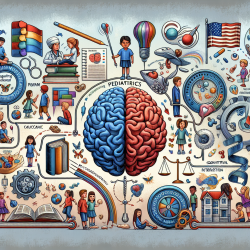The importance of motor competence in children's health and development is well-documented. However, a recent study titled Motor Competence between Children with and without Additional Learning Needs: A Cross-Sectional Population-Level Study sheds light on the disparities in motor competence between typically developing children and those with additional learning needs (ALN). This study is crucial for practitioners focused on creating positive outcomes for children.
Conducted with a nationally representative cohort of 4,555 children from 65 schools across Wales, the study used the Dragon Challenge assessment to measure motor competence. The results showed that typically developing children demonstrated higher proficiency in all nine motor competence tasks compared to their peers with ALN. These findings emphasize the need for targeted interventions to bridge this gap.
Key Findings and Practical Implications
- Proficiency in Balance and Stability Tasks: Typically developing children were 35% more likely to be proficient in balance tasks and 65% more likely in core stability tasks than children with ALN.
- Object Control Skills: Children without ALN were 29% more likely to be proficient in overarm throw and 49% more likely in basketball dribble.
- Locomotor Skills: Typically developing children were significantly more proficient in tasks like T-run, jumping patterns, and sprint finish.
These findings highlight the importance of early intervention and inclusive physical education programs. Practitioners should focus on creating opportunities for children with ALN to engage in various physical activities that promote motor competence. This could include:
- Incorporating dynamic assessments like the Dragon Challenge in school curricula.
- Providing targeted support and resources for physical education teachers to engage children with ALN effectively.
- Developing individualized intervention plans that focus on improving specific motor skills.
Encouraging Further Research
While this study provides valuable insights, it also underscores the need for further research. Future studies should focus on longitudinal data to understand the long-term impact of motor competence interventions. Additionally, more research is needed to explore the role of socioeconomic status, ethnicity, and gender in motor competence development.
Practitioners are encouraged to collaborate with researchers to develop and implement evidence-based interventions. By doing so, we can ensure that all children, regardless of their learning needs, have the opportunity to develop essential motor skills that contribute to their overall health and well-being.
To read the original research paper, please follow this link: Motor Competence between Children with and without Additional Learning Needs: A Cross-Sectional Population-Level Study.










